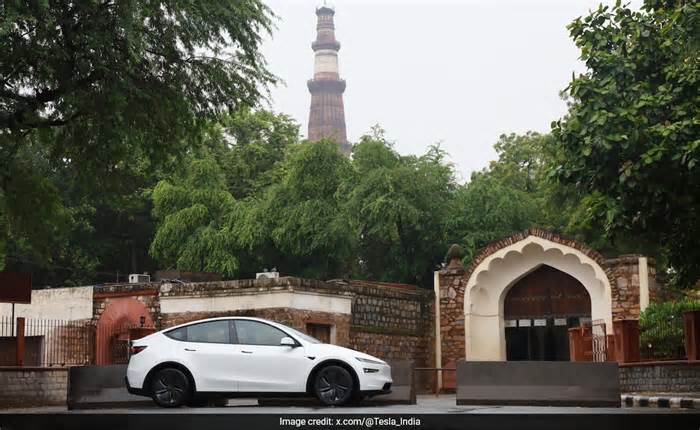
Elon Musk's SpaceX absolutely needs its satellite internet business to work
- by Mashable
- Apr 10, 2025
- 0 Comments
- 0 Likes Flag 0 Of 5

Miriam Kramer
Miriam Kramer worked as a staff writer for Space.com for about 2.5 years before joining Mashable to cover all things outer space. She took a ride in weightlessness on a zero-gravity flight and watched rockets launch to space from places around the United States. Miriam received her Master's degree in science, health and environmental reporting from New York University in 2012, and she originally hails from Knoxville, Tennessee. Follow Miriam on Twitter at @mirikramer. Where the space money is
Original image has been replaced.
Credit: Mashable
Instead of building a full fleet of internet-delivering satellites, why doesn't SpaceX just focus on what it knows how to do and launch rockets to space?
Well, to put it simply, that's not where the money is.
According to the Journal's reporting, the rocket launch industry as a whole "produces only $4.5 billion in total annual revenue."
"To me the importance that SpaceX is placing on satellite internet demonstrates their acknowledgement that launch revenues won't be enough to match their ambitions," Bill Ostrove, an aerospace and defense industry analyst at Forecast International told Mashable via email. He added:
The [Wall Street Journal] article mentions that the launch industry is simply not big enough to generate enough revenue to fund trips to Mars. Even if we project the launch market to grow quickly as lower prices attract new customers, revenue probably won't climb fast enough. So really, if revenues from satellite internet are not able to match their projections, that may push back plans to settle colonies on Mars.
SpaceX isn't alone in that sector of the space industry, however.
Another spaceflight company, OneWeb, is further along in its plan to eventually launch a fleet of 900 internet-delivering satellites to orbit. That company announced that it raised $1.2 billion in investor funding at the end of 2016, and it is getting ready to start manufacturing satellites in Florida.
Google and Facebook are also both interested in creating satellite internet businesses of their own.
Facebook's plans were set back when a SpaceX Falon 9 rocket exploded on its pad in September 2016, destroying the AMOS-6 satellite. The social network was planning to lease time on that spacecraft to test out how space-delivered internet worked in Sub-Saharan Africa.
Failed launches, lost revenue
That failed launch could also be at least part of the reason for some of SpaceX's less-than-ideal financial footing highlighted in the Wall Street Journal.
The September accident added to the company's losses after a 2015 accident and subsequent delays "contributed to a quarter-billion dollar annual loss and a 6 percent drop in revenue, after two years of surging sales and small profits," the Wall Street Journal said.
SpaceX's launch failures may not be the only contributors to the company's shaky bottom line.
The very things that makes SpaceX special -- its ambitions and tendency to stretch itself thin -- may also be factors.
"SpaceX is involved in so many different projects, so I wonder if costs are going up. Production is higher as they are doing more launches," Ostrove said.
"But they're also spending more money developing a human-rated Dragon, the Red Dragon, the satellite constellation, and Mars settlement plans. Maybe none of those things by themselves are making a big difference, but combined, they may be affecting profits."
Featured Video For You
Please first to comment
Related Post
Stay Connected
Tweets by elonmuskTo get the latest tweets please make sure you are logged in on X on this browser.






 Energy
Energy



















